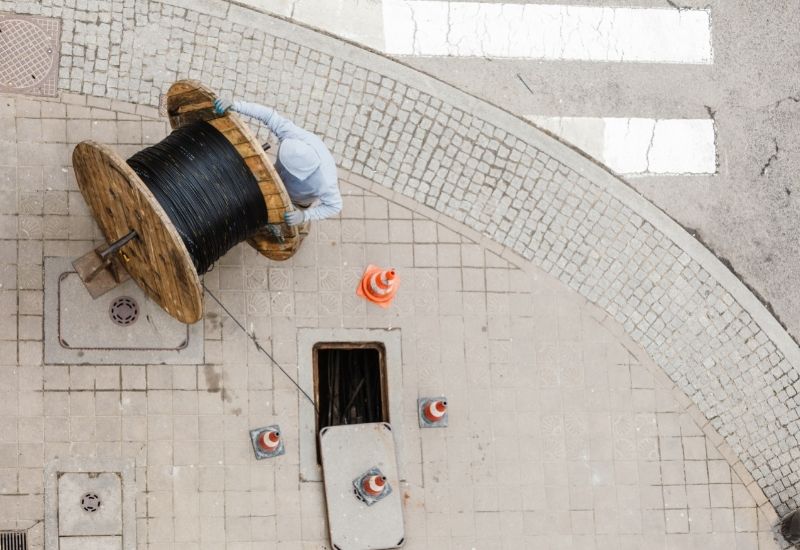
How To Keep Sewer Lines Clean: The Ultimate Guide
Most people can agree that dealing with plumbing issues is in the top 10 most annoying situations to be in. Many don’t know that on most occasions, the root of these problems comes from not knowing how to keep their sewer lines clean.
Understanding Sewer Lines
Before learning how to keep your sewer lines clean, it is crucial to understand what these lines are and their function. Sewer lines are what connect your home’s drains to your city’s main sewer drain. All your property’s wastewater sources merge among each other into a larger pipe.
If you are experiencing any of the following problems, it is time to start being more thoughtful about your sewer lines’ condition:
- Smelly drains
- Drains working slowly
- Gurgling sounds from pipes
- Frequent clogging
- Water backing up
Avoid unwanted drainage issues following these simple yet effective tips before it is too late!
Top Tips On How To Keep Sewer Lines Clean
Keep Nature Away
As beautiful as big trees are, they are not necessarily your sewer lines’ best friends.
Since wastewater is constantly looking for hydration and nutrients, it is prevalent for roots to grow into sewer lines. These roots will usually get into the pipe and continue to grow inside until your sewer line is clogged.
Ensure to trim and prune your greenery regularly and have your sewer lines in mind whenever you decide to plant new trees—always considering the desired location, type of tree, and length of roots.
Watch What You Put Down The Drain
One of the most vital preventive measures to keep your sewer lines clean is to be careful about what you are letting into your drain.
We recommend scraping food from dishes before rinsing them on the sink, especially fats and oils, stringy foods like pasta, raw meat, eggshells, or anything that is not small crumbs. Also, make sure to dispose of any non-food item outside the sink properly! For example, avoid brushing your hair right on the sink to prevent hair build-up, not flush hygiene products down the toilet, etc.
Remember, your drain is not a replacement for your garbage!
Use Enzyme Cleaners
Although regular cleaners are quicker to clear clogs, they contain chemicals that cause pipes to crack over time. Our recommendation as professionals is to use enzyme cleaners. These include natural enzymes that break down molecules, allow bacteria to consume them, and thoroughly clean your sewer lines.
Perform Maintenance Cleaning
Give your sewer lines annual cleaning maintenance done by professionals! The sooner any severe issues are spotted, the minor damage they will make and the easier it will be to resolve it. Many tend to skip maintenance processes because their drains seem fine, but sometimes clogging is just starting to build up. Save yourself stress and money following this tip.
How to clean your sewer lines
Mix soda and vinegar
One way to clean your sewer lines is to use a baking soda and vinegar solution. The combination creates bubbles that scrape away the grease. This is one of the most effective ways to remove grease from sewer lines.
When the grease has cooled, it becomes sticky and can attract other types of debris. Even though you may not use your sink or kitchen drains regularly, grease can build up in the pipes. Fortunately, this process is quick and easy.
The most basic method is baking soda. Baking soda is an alkaline substance, which means that it will easily break up dirt and grease.
Washing soda and vinegar are abrasive chemicals that can damage pipes. While these solutions will unclog a clogged pipe, you should avoid using them too often as they will not get the job done properly.
If you want to keep your pipes open, try an enzyme monthly maintenance program.
Consider using chemical cleaners
While the plumber’s preferred method is a snake, you can use a chemical cleaner to do the job yourself.
The cost varies from $5 to $300, but these products are environmentally friendly and safe to use. When you’re trying to decide whether to use baking soda or a chemical solution, make sure to ask the plumber about the best way to clean your sewer lines.
If a chemical solution is not appropriate for your home, you can purchase an enzyme product for your pipe.
Enzymes work best when mixed with hot water. The mixture’s strength will vary depending on the strength of the enzyme you’re using.
It’s important to use the right amount of liquid, since hot water will make it easier for the enzyme to digest the grease. If the solution is too strong for you to pour down the drain, you should call a plumber who can do the job properly. A plumbing professional can clean your sewer lines for a minimal fee.
Using an enzyme drain cleaner is one of the most effective ways to clean sewer lines. The enzymes can eat grease and other non-biodegradable material.
They will also help you prevent future clogs. For example, you should try using a solution of enzymes in hot water. These mixtures will dissolve small clogs and prevent future clogs.
If Your Sewer Lines Are Already Causing Problems, Don’t Worry!
A gurgling sound will be heard from the mainline and can be very unpleasant. If the sewage overflows into your house, it can cause water to back up into your fixtures and drain.
If you have any of these symptoms, you should call a plumber right away. A thorough cleaning will prevent further damages to your home.
If your sewer lines are already clogged before you had the chance to try these tips out, Discover Plumbing has your back. Our professionals will inspect the lines, spot the issue, and offer you the ideal solution. After your sewer lines become clean again, you already know the secrets on how to keep them clean!
